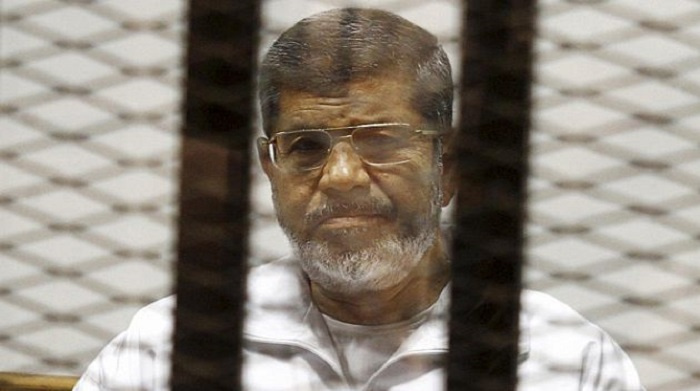Morsi’s Execution, Sisi’s Political Need

What is seen in Egypt’s political scene is that the majority of domestic and foreign circles have expressed their opposition to the verdict issued for the execution of Mohammad Morsi, Egypt’s former president, during an unfair process. Many believe that political considerations and the time of its announcement have impacted this verdict. Certainly, political considerations are related to the domestic conditions of Egypt and regional equations.
Domestic considerations
The trend of judiciary processes in Egypt during the last two years have always been based on the needs of the military officials; verdicts related to Hosni Mubarak and the leaders of the Muslim Brotherhood and also the timing of their announcements, whether they are issued to calm the atmosphere or to stress their power. Most of the analysts believe that besides these trials, there is a scenario for Egypt’s military officials in order to administer the affairs of the country. Right now, the parliamentary elections in Egypt have been postponed which have led to certain dissatisfactions. The Islamists still intend to return to the political scene and they hope that the atmosphere would be more open. They are still hopeful of their leaders in prison. Therefore, the verdicts of execution for Morsi and life imprisonment for the leaders of the Muslim Brotherhood are attempts made to disappoint the internal Islamist forces who cannot easily return to the past conditions. This issue will lead the Islamist groups to establish a new structure and move towards peace and calm. The verdicts of execution and life imprisonment are aimed at extinguishing the glimmers of hope for the Islamists to return to power and creating hope for the secular groups. These groups in Egypt are different parties who have always hoped for the Muslim Brotherhood not to return to power and that they move towards gaining power.
Foreign considerations
Regarding the foreign considerations, these verdicts are related to the new rulers of Saudi Arabia. At the present time, Saudi Arabia has pursued a new policy with regard to the Muslim Brotherhood in the region. They attempt to establish close relations with the Muslim Brotherhood in Yemen. There are also signs of opposition regarding harsh reactions against the Muslim Brotherhood. This change of policy is not to the benefit of General Sisi and all those who are against the Muslim Brotherhood. Sisi is concerned about the policies of the new Saudi rulers based on returning the Muslim Brotherhood to power in Yemen. They try to somehow reduce Saudi Arabia’s pressures through these measures. On the other hand, the government of Egypt intends to satisfy Israel. Israel demands pressure on the Muslim Brotherhood. Hamas is a successful group of the Muslim Brotherhood. The weaker the Muslim Brotherhood is, the less hope there is for Hamas’ return to power, thus, the military officials of Egypt attempt to gain the satisfaction of Israel. The government of Egypt has also stated that it has destroyed 80% of the tunnels which pass through Rafah. This measure will diminish Hamas’ hope for outside contact, hence, disappoint it.
But the mistake made by the military and judiciary of Egypt is that they have not considered the atmosphere inside Egypt. The atmosphere of this country is not calm and, with the announcement of Morsi’s execution, this atmosphere will intensify. The people have stated that they will hold demonstrations and protests. Therefore, such a verdict at the present time is not to the benefit of the Egyptian government. Furthermore, voices of protest are also heard from outside Egypt as well. The US is also bound to oppose this verdict because supporting it will not be to its benefit.
Behind-the-scenes relations to weaken the Muslim Brotherhood
Riyadh has to coordinate itself with Washington and international movements. At the same time, the Egyptian military officials attempt to satisfy Riyadh because they have secretly cooperated with Saudi Arabia in its attack against Yemen. They depend on Saudi Arabia’s aids. But Egypt has taken a measure which if one day Riyadh supports the Muslim Brotherhood, the Muslim Brotherhood will not be able to raise itself. Therefore, the elimination of main figures will not be compensated. Riyadh wants a weakened Muslim Brotherhood. It does not want a strong, organized and established Brotherhood which would attempt to implement democracy. It is the same in Yemen. Riyadh has turned to the Brotherhood which is weak. What is happening between Cairo and Riyadh is an unwritten agreement to limit the main figures of the Muslim Brotherhood and pressure them through judiciary verdicts; a Brotherhood which is weak if it decides to start its activities in Egypt or Yemen.

